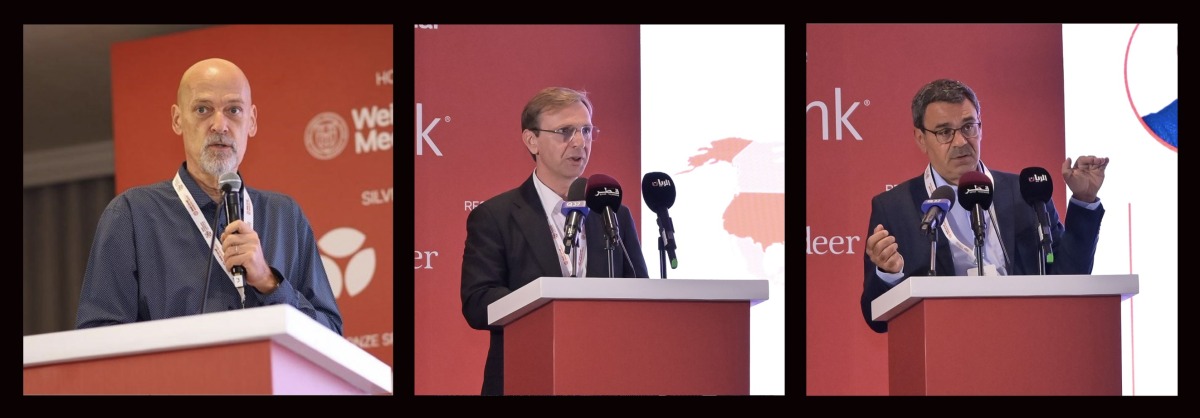
This year’s conference featured engaging sessions, focused on groundbreaking technologies and the critical health challenges.
Doha, Qatar: Weill Cornell Medicine-Qatar’s 3rd Qatar Proteomics Conference brought together world-renowned academic scientists, researchers and scholars for a dynamic exchange of the latest findings, technologies and innovations in proteomics and bioinformatics.
Building on the success of previous editions, this year’s conference featured engaging sessions, focused on groundbreaking technologies and the critical health challenges of our time, including diabetes, obesity, cancer, infectious diseases, and more.
Proteomics is the comprehensive study of proteins, focusing on their structure, function, and interactions within an organism. Proteomics research seeks to reach better understandings of the biology of a cell or disease, which has the potential to lead to new therapeutic targets and better diagnostic tools.
Key topics included mass spectrometry-based technologies, affinity-based platforms, and their applications to investigation of complex health conditions. Additional sessions explored the transformative role of proteomics in population health, showcased insights from the Human Proteome Organisation (HUPO), and highlighted regional developments shaping the field of proteomics in the Gulf region.
Leading national, regional and international scientists appeared as expert speakers at the conference, sharing their latest findings and experiences in proteomics and highlighting new developments in the field. The conference was coordinated by WCM-Q’s Dr. Frank Schmidt, director of the proteomics core and associate professor of biochemistry and biophysics; and Dr. Karsten Suhre, professor of physiology and biophysics, assistant dean for intercampus research partnerships, and director of the bioinformatics core, along with members of their team, including instrumentation supervisor Dr. Sunkyu Choi, and laboratory supervisor Muna Al-Noubi. Dr. Schmidt and Dr. Suhre were both among the expert speakers at the conference, as was Dr. Khaled Machaca, WCM-Q professor of systems and computational biomedicine and vice dean for research, innovation and commercialisation.
Dr. Schmidt said, “We were very pleased to welcome so many world-class proteomics researchers to Qatar to share their expertise, discuss the latest developments in the field, and explore future collaborative projects. The potential for combining proteomics with other -omics technologies to increase our understanding of complex diseases is vast, and this can pave the way for improved diagnostic techniques and more effective treatment strategies.”
The conference also featured poster presentations and networking opportunities, creating a collaborative environment designed to bridge disciplines and accelerate discovery. Thanks to the high-profile researchers who attend each year, the Qatar Proteomics Conference has become a landmark regional event at the forefront of global proteomics and cross-omics research, fostering collaboration, innovation and impactful scientific exchange.
Dr. Suhre said, “We are very happy that the conference has helped to build upon Qatar’s leading role in proteomics research, drawing attention to the country’s growing position as a regional and global hub for very high-quality science in this rapidly developing field.
“Bringing world-class experts in proteomics together here in Qatar to share their experiences is a very effective way to foster collaboration and drive advances in discovery.”




